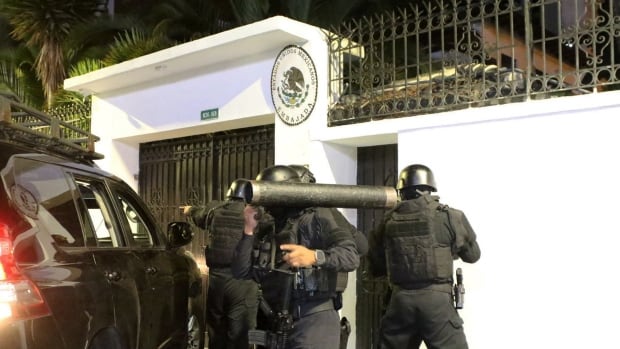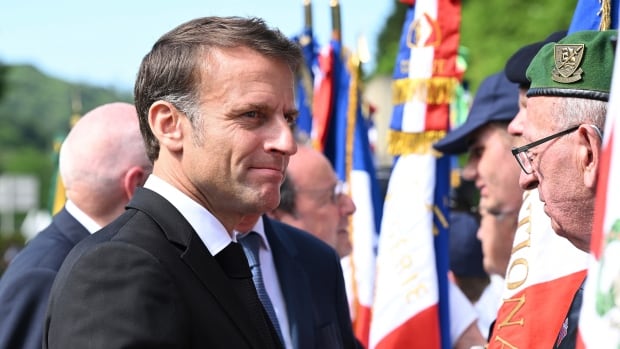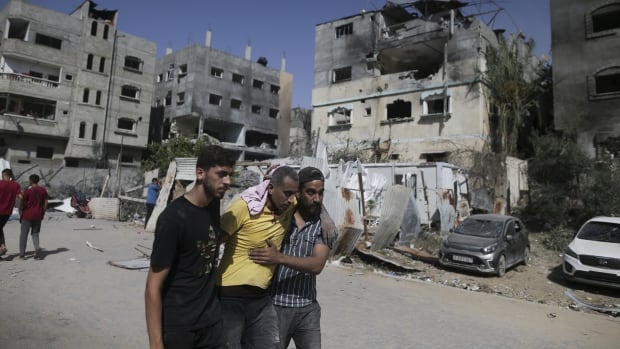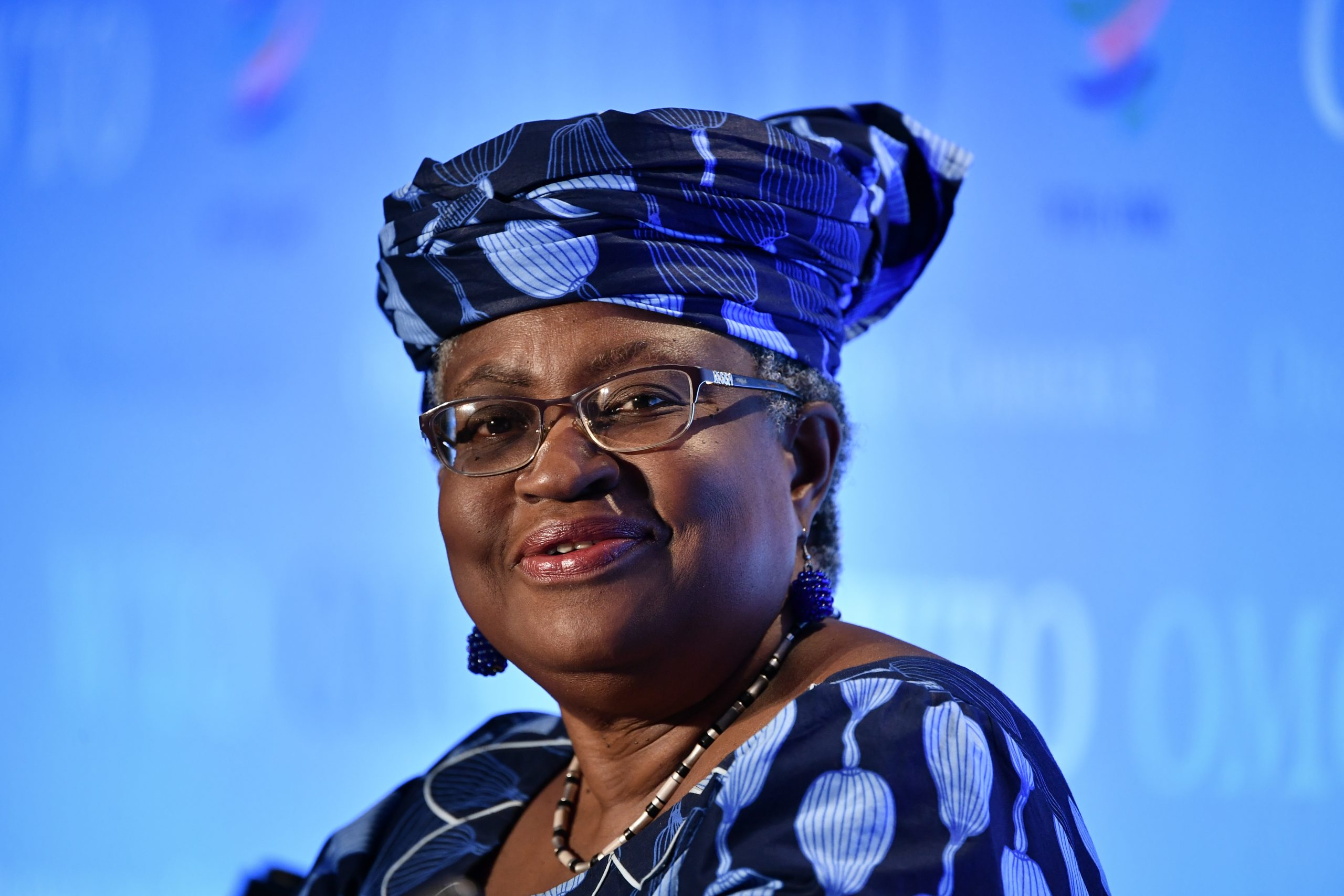Could Ukraine really look to its prisons to field thousands of new recruits for its war with Russia?
It’s a possibility, after Ukrainian President Volodymyr Zelenskyy signed legislation last week allowing certain convicts to enlist. Several thousand prisoners are now asking to be let into the army, according to Ukraine’s deputy justice minister, Olena Vysotska.
As the war grinds into its third year, Ukraine has struggled to find the additional soldiers it needs. To get more people in uniform, the government has lowered its draft age, increased fines for draft dodgers and reminded Ukrainian men abroad of their obligations.
But the decision to allow convicts — excluding those involved in particular serious crimes — to join the army is an indication that Kyiv is willing to cast a wider net to meet its wartime personnel needs. How far that will go in boosting its ranks remains to be seen.
“The army of Ukraine is facing an increasingly acute problem of personnel shortages, and the involvement of prisoners can slightly reduce the acuteness of this problem,” Andrii Kharuk, a Ukrainian military historian, said via email.
Russia’s approach
Ukraine’s need for soldiers comes amid ongoing Russian attacks on the northeastern Kharkiv region, a situation that has commanded Kyiv’s attention in recent weeks and necessitated sending reinforcements. Regional Gov. Oleh Syniehubov said Friday that authorities have evacuated more than 11,000 people since the Russian attacks started on May 10.
The motivations for Russia’s actions in the northeast have several possible explanations: Russian President Vladimir Putin has claimed Moscow wants to create a buffer zone, while some analysts suggest Russia’s Kharkiv actions may be intended to divert focus from other parts of the front line.
Russia has a population more than three times that of Ukraine, providing an advantage in numbers when it comes to drafting potential soldiers. Yet it has also been sending Russian prisoners to Ukraine for much of the all-out invasion.
Yevgeny Prigozhin, the late founder of the paramilitary Wagner Group, made headlines in 2022 when video surfaced showing him making a direct appeal to inmates to earn their freedom by fighting in Ukraine. He claimed to have recruited tens of thousands of men from Russian prisons.

Russia continues to send convicts into battle, though some reports suggest Moscow has dialled back the terms offered to those who serve. It has also seen headline-making incidents of violence on its side of the border, involving prisoners-turned-soldiers who returned home after serving in Ukraine.
A change for Ukraine
Kharuk, the military historian, said Kyiv had its reasons for not looking to prison populations for potential recruits earlier in the conflict.
“In my opinion, at the beginning of the war, Ukraine failed to mobilize prisoners for ethical reasons,” said Kharuk, who is also a humanities professor at Hetman Petro Sahaidachnyi National Army Academy in Lviv, Ukraine.
The six-month delay on the U.S. military aid package has led to tactical disadvantages for Ukraine, says Prime Minister Denys Shmyhal. Shmyhal talks about the country’s relationship with NATO and Canada’s support for Ukraine during the war.
“Against the background of the mass recruitment of prisoners into the Russian army, it was important to demonstrate that Ukraine interprets service in the army as an honourable duty of a citizen, and not as a way to avoid punishment for criminal penalties.”
Kyiv officials say roughly 20,000 prisoners could be eligible to pursue this route to military service, though only a fraction are expected to do so.
Two of the earliest men cleared to fight are convicted thieves who were ordered released for this purpose, Agence France-Presse reported this week. A further 50 prisoners were released so they could join the army, the Kyiv Independent reported Friday.
The British experience from long ago
A century before the current war in Ukraine, there was another land war in Europe that demanded ever-more troops be sent into the fray.
That was the First World War, a conflict that claimed millions of lives, including those of 880,000 British forces.
Britain would end up sending convicts into the fight as the war progressed, just as Ukraine is considering today.
Cameron McKay has studied this history closely and written about how Britain came to understand it would need to source a lot more men to fight than were available at the war’s outset.
“Manpower shortages were certainly a determinant in allowing criminals to enlist,” McKay, a historian, explained via email.
“At the beginning of the war, defendants who offered to enlist rather than be sent to prison were usually told no. However, as the war progressed, defendants were increasingly allowed to enlist.”
According to his research, decision-makers in Britain saw various advantages in letting prisoners serve in the army. These included military service being viewed “as an opportunity for redemption, whilst also reducing the prison population,” McKay said.
Unlike the situation in modern Ukraine, however, Britain allowed violent offenders to enlist.
Some of the arguments made against their enlistment revolved around possible resentment from fellow soldiers.
“It was also widely believed at the time that criminals lacked the selflessness needed for military service, although their readiness to enlist proved otherwise,” McKay said.
Pressures on Kyiv
Oxana Shevel, an associate professor of political science at Boston’s Tufts University, said the unpredictable nature of the war creates challenges for a government in Kyiv that must decide who must join the fight.
Shevel notes that the action of “conscripting a lot of people who may not want to be conscripted is not a super popular move,” however necessary it may be for Kyiv’s war effort. There are also unresolved issues about so-called demobilization, as some of Ukraine’s soldiers have been on the front line for two-plus years, with no end in sight to their military service.
The Ukrainian-born Shevel does not see Kyiv’s decision to allow prisoners into the military as particularly controversial, given that those convicted of serious crimes are excluded from service. And it’s asking them to take on the same risks as anyone else helping to defend Ukraine.
More generally, Shevel said political leaders in Kyiv have had to make ongoing hard choices about who to call up to the military, while balancing other considerations, such as the demographic and economic impacts that conscription poses.
But she said they’ve also been clear about why they can’t avoid making those decisions, either, given the costs of failing to stop Russia.
“The invading army is not going to care about anybody’s human rights,” Shevel said.






